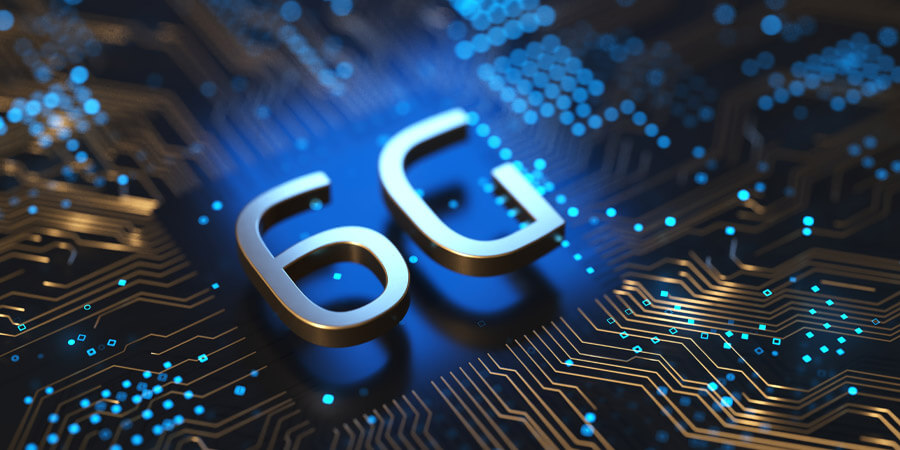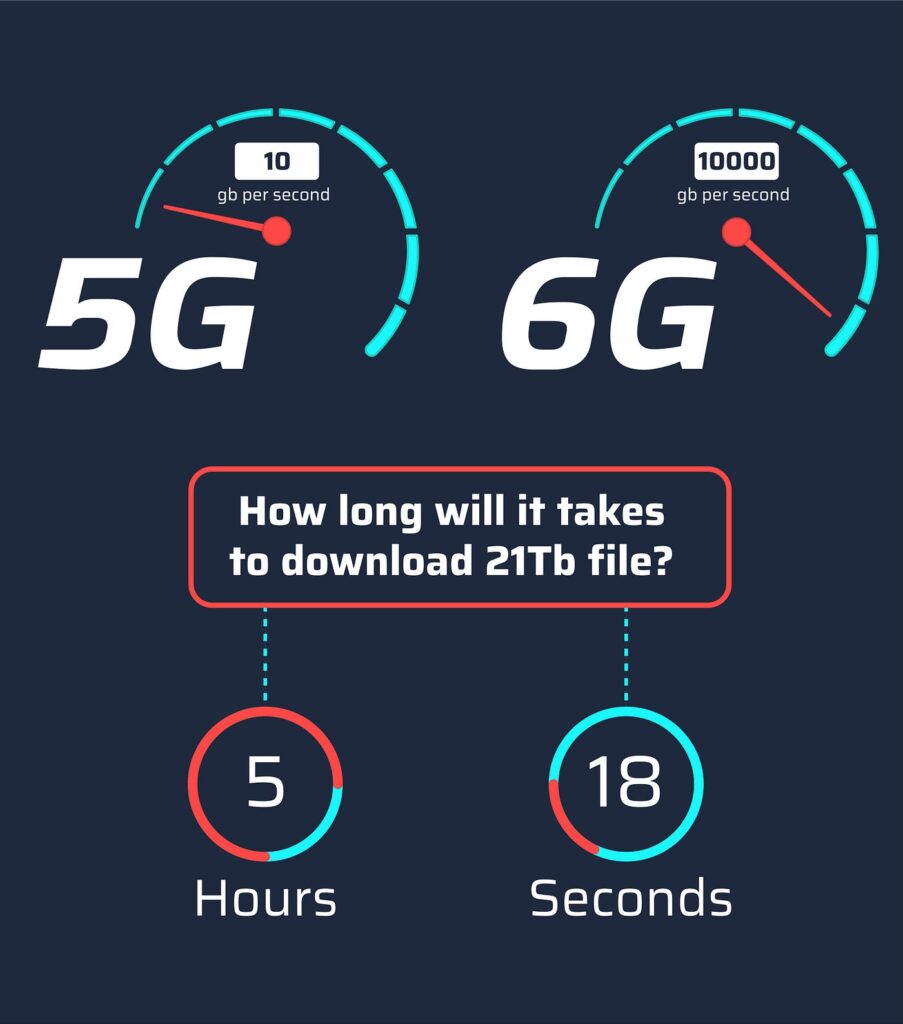As Africa steadily bridges its digital divide through the rollout of 5G, policymakers and industry players are already looking ahead: the continent is on the brink of the next telecommunications revolution—6G. Not merely a faster version of 5G, this upcoming technology holds the promise of transforming societies, economies, and livelihoods—if the right frameworks are in place.
Table of Contents

The 5G Foundation: Momentum and Promise
Over the past few years, 5G has emerged as the fastest-growing mobile subscription type in sub-Saharan Africa. Ericsson’s Mobility Report forecasts that 5G subscriptions will explode from around 11 million in 2023 to 420 million by 2030—an annual growth of 59 per cent—and account for one-third of all mobile subscriptions in the region by decade’s end. This expansion is powered by a youthful demographic, affordable smartphones, and a surge in demand for advanced digital services.
Regionally, GSMA projects that by 2030, Africa will boast some 340 million 5G connections, making up about 20 per cent of all mobile links. Notably, this technological wave is expected to contribute up to US$26 billion to Africa’s GDP between 2021 and 2030. Further illustrating the broader impact, GSMA places the mobile industry’s contribution at US$140 billion in 2023, with a projected rise to US$170 billion by 2030, provided we address lingering connectivity gaps.
Yet gaps remain: millions remain unconnected, and challenges like infrastructure costs, digital illiteracy, device affordability, and spectrum allocation still hinder access.
5G’s transformative potential spans sectors—from precision agriculture using IoT sensors to telemedicine, digital classrooms, smart logistics, and fintech innovation for SMEs.

Nigeria’s Perspective: Scaling 5G, Envisioning 6G
In Nigeria, 5G has seen measured progress since MTN’s commercial launch in September 2022. By December 2024, it made up just 2.46 per cent of total mobile subscribers—still modest, but indicative of early momentum. The majority still subscribe to 4G (47 per cent), followed by 2G (41.6 per cent) and 3G (8.8 per cent), while coverage figures across technologies vary widely.
With 5G still finding its footing, regulatory authorities such as the Nigerian Communications Commission (NCC) are already positioning the nation for 6G. Ambitious forecasts from the NCC suggest the move could deliver up to US$1 billion in government revenue, even though concrete applications are yet to be fully defined. The NCC is reviewing spectrum policy frameworks, cybersecurity, consumer protection, and research ecosystems to prepare for the shift.
What Is 6G, and Why It Matters
6G is not simply “5G but faster.” A concerted industry effort—including standards bodies like ITU-R IMT-2030, 3GPP, and NGMN—is establishing its architecture, goals, and models. Many expect 6G to emerge in the early 2030s; in some estimations, it will begin rolling out toward the end of this decade.
The technological leap includes terahertz frequencies, near-instantaneous latency, massive device densities, and AI-native networks—networks that automate traffic, self-optimise, and deliver immersive experiences like AR/VR and holographic communication.
Moreover, 6G’s architecture is expected to radically reduce energy consumption and embrace sustainability, leveraging renewable energies, eco-friendly materials, and intelligent energy management inspired by AI and IoT networks. One transformative benefit is broad coverage: by partnering satellite systems, UAVs, and other airborne platforms, 6G could bring broadband to remote regions, bridging the digital divide.
A Decade of Opportunity — And Risks
For Africa, 6G presents a once-in-a-generation opportunity. A young, mobile-first population, an agile fintech and tech startup ecosystem, and experience leapfrogging legacy tech are unique assets. Imagine fully automated smart cities, remote robotic surgeries in rural clinics, immersive education, real-time weather data for farmers, and seamless digital governance.
But the risks are real. Without substantial investment in infrastructure, skills development, and policy, 6G could deepen, not diminish, inequality. Weak institutions, corruption, and teacher shortages in education systems threaten equitable access. Telecom providers could be distracted, still trotting out ROI from 4G/5G instead of forging ahead.
On the technical side, the ultra-high frequencies of 6G are more vulnerable to interference from physical obstacles and require costly densification and hardware innovations.
What Needs to Happen Now

To ensure 6G becomes a force for inclusive growth, a multi-pronged strategy is essential:
- Policy and regulation: Pro-investment licensing (e.g. long spectrum durations, fair pricing), streamlined permits, and cross-sector collaboration between government, telcos, and institutions.
- Funding and infrastructure: Public–private partnerships, integration of renewable energy, silicon innovations, and expansion of fibre and backhaul systems.
- Skills development: National programmes upskilling AI, IoT, telecom systems, and digital literacy to democratize access.
- Innovation ecosystems: Encourage local startups in agritech, med-tech, climate forecasting, fintech, and e-governance to build 6G-ready solutions.
- Equity and inclusion: Target underserved communities, and ensure 6G infrastructure serves teachers, clinics, farmers, small traders, not just urban elites.
The Road Ahead
If Nigeria—and Africa writ large—can pivot strategically from today’s 5G rollout to prepare for 6G, then by the early 2030s, we can witness a transformed digital landscape: a connected, AI-driven continent fuelled by innovation, brighter livelihoods, and a vibrant economy.
Yet, the clock is ticking. The foundations need to be laid today.
Join Our Social Media Channels:
WhatsApp: NaijaEyes
Facebook: NaijaEyes
Twitter: NaijaEyes
Instagram: NaijaEyes
TikTok: NaijaEyes








































